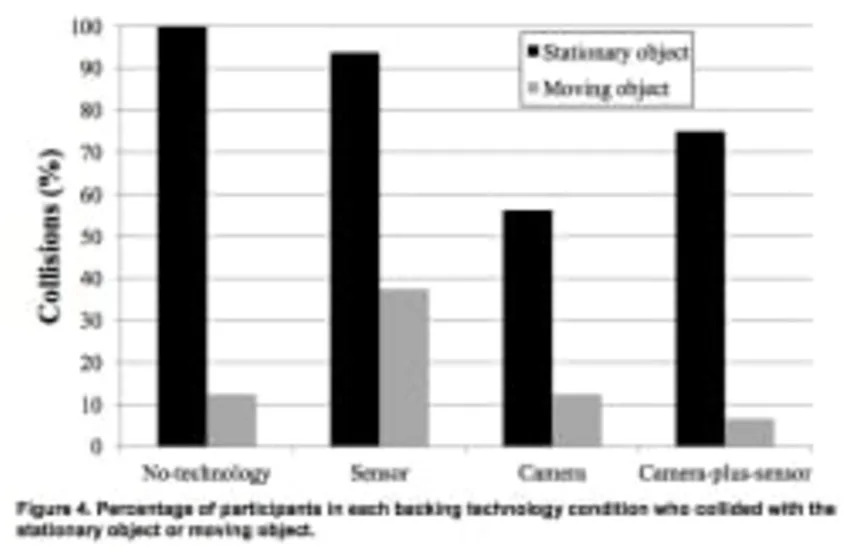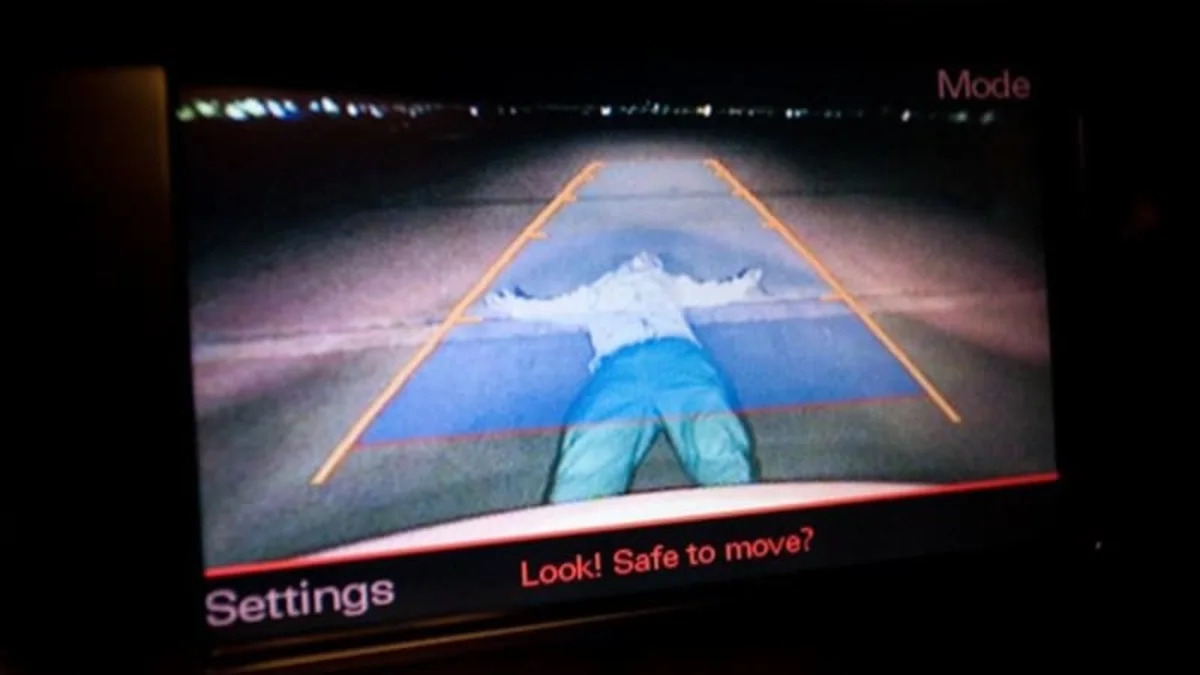Rearview cameras sound like a good bet if you're concerned about safety, but a new study just published by the Insurance Institute for Highway Safety indicates that their benefits may be limited. Parking sensors, says the study, provided drivers with no more safety protection than using just your mirrors, and combining those and backup cams together was actually more dangerous in some cases.
The study examined 111 volunteers who were asked to perform normal driving behaviors. When they left a parking spot, the cutout of a child either jumped up or moved into place to surprised them. The vehicles were equipped with parking sensors, backup cameras, both or neither.
 The study results are surprising. For the stationary object: 100 percent of those tested using just their mirrors hit it, about 95 percent with parking sensors, 56 percent with the camera and 75 percent with the both. For the moving obstacle: 13 percent collided with it using no technology, about 40 percent with the sensors, 13 percent with the camera and less than 10 percent for the combo. The results can be seen in graph to the right.
The study results are surprising. For the stationary object: 100 percent of those tested using just their mirrors hit it, about 95 percent with parking sensors, 56 percent with the camera and 75 percent with the both. For the moving obstacle: 13 percent collided with it using no technology, about 40 percent with the sensors, 13 percent with the camera and less than 10 percent for the combo. The results can be seen in graph to the right.
Parking sensors were found to be almost useless in these cases. The major problem was that they had a range of only around eight feet, which doesn't give enough time to react. They were made even less helpful in combination with backup cams because drivers were less likely to look at the video display when they had a parking system.
"Right now cameras appear to be the most promising technology for addressing this particularly tragic type of crash, which frequently claims the lives of young children in the driveways of their own homes," says David Zuby, the group's executive vice president and chief research officer, in a statement on the official site of the IIHS. It also provides an abstracted view of the study and graph showing each system's effectiveness. Take a look for the full results.
The study examined 111 volunteers who were asked to perform normal driving behaviors. When they left a parking spot, the cutout of a child either jumped up or moved into place to surprised them. The vehicles were equipped with parking sensors, backup cameras, both or neither.
 The study results are surprising. For the stationary object: 100 percent of those tested using just their mirrors hit it, about 95 percent with parking sensors, 56 percent with the camera and 75 percent with the both. For the moving obstacle: 13 percent collided with it using no technology, about 40 percent with the sensors, 13 percent with the camera and less than 10 percent for the combo. The results can be seen in graph to the right.
The study results are surprising. For the stationary object: 100 percent of those tested using just their mirrors hit it, about 95 percent with parking sensors, 56 percent with the camera and 75 percent with the both. For the moving obstacle: 13 percent collided with it using no technology, about 40 percent with the sensors, 13 percent with the camera and less than 10 percent for the combo. The results can be seen in graph to the right.
Parking sensors were found to be almost useless in these cases. The major problem was that they had a range of only around eight feet, which doesn't give enough time to react. They were made even less helpful in combination with backup cams because drivers were less likely to look at the video display when they had a parking system.
"Right now cameras appear to be the most promising technology for addressing this particularly tragic type of crash, which frequently claims the lives of young children in the driveways of their own homes," says David Zuby, the group's executive vice president and chief research officer, in a statement on the official site of the IIHS. It also provides an abstracted view of the study and graph showing each system's effectiveness. Take a look for the full results.


Sign in to post
Please sign in to leave a comment.
Continue